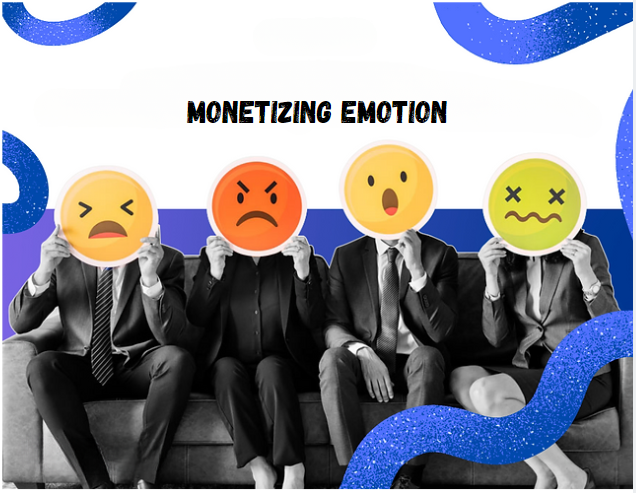Dear Clients and Friends,
There are over 5 Billion users of Social Media around the world as of this year. The average consumer of Social Media spends over 2 hours per day checking and posting on Social Media websites. There is nothing wrong about using our phones as tools, but once again, no good deed goes unpunished. There is a ‘Darkside’ to our use of social media and it comes in the form of companies ‘monetizing our emotions’. As American Artist and sculptor, Richard Serra once noted, “if the product is free, you are the product”. Social media has a tendency to make us the product for advertisers, and it does this by monetizing our emotions. The dark secret about our financial media is similar, and while the market is just a tool, there remains a large cohort that uses our markets to monetize our emotions.
Social Media and Markets are heavily influenced by sentiment. Investor sentiment can drive market trends and stock prices; while on social media, public opinion and mood can shape trends and viral content. Then we have FOMO, also known as Fear of Missing Out. Investors might buy stocks due to FOMO when they see others making gains. On social media, users might engage with content or trends to avoid missing out on popular conversations or content. We can go on with other approaches or tactics such as Influence of Trends, Real-Time Reactors, Speculation and Rumors, to Virality and Momentum (aka: viral growth). But what does it do to us?
There are many different answers to this complex question, but my main focus is our emotions. Just as love and hate are primary emotional motivators for social media; fear and greed tend to be the analog emotions for the markets. Markets move, which gives the illusion of making money or losing money on any given day, but that is only the half of it. Over time markets move higher, and those who stay invested make money, but this reality is lost-in-translation when investors watch the day-to-day movements. In my experience, the more time I spend looking at the market, the more emotional I become, and I think many investors feel the same. The same could be said about social media, the more time spent looking at posts and responding to the manic action of a platform, the more emotional we become.
So here is another question: what are we going to do with those who would have us act on emotion? The answer is to simply ignore the medium producing the emotion. Your emotions won’t change the outcome, whether that be on social media or in the market. We invest with purpose and we should also use all tools available with purpose. Understanding those who predict the future with confidence are often wrong. Their confidence, their politics, their moral persuasion offers little to inform their prediction. Emotions are hard to control and those that want our attention know this, and in many cases, use this emotional persuasion to drive our behavior. We have to know when our emotions are being monetized and know when we are hearing truth – making the effort to prevent ourselves from becoming the product.
The opinions voiced in this material are for general information only and are not intended to provide specific advice or recommendations for any individual. All performance referenced is historical and is no guarantee of future results. All investing involves risks including loss of principal. No strategy assures success or protects against losses.
The economic forecasts set forth in this material may not develop as predicted and there can be no guarantee that strategies promoted will be successful.

